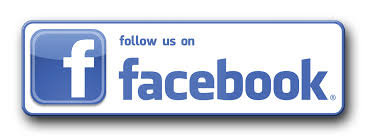Customer Relationship Management ( CRM) is an essential tool for the growth of the business in today’s competitive world. CRM enables you to organize and streamline your business process with data stored in a single database.CRM makes your work easier and helps in the fast growth of your business. It is crucial to know the market in demand and make essential development of product or service. CRM gives you great support for your business to face challenges that come across the journey.
CRM is a great tool with effective CRM security features installed. Security matters a lot as CRM stores complete data in a centralized database. Without proper security measures, anyone on the internet can steal your customers’ data, business practices, and employment information. A hacker can easily hack your system and leak all the business data. In order to be safe from cyber threats, it is essential to choose a CRM with the best security features. The data that is breached from the CRM system can even lead to a loss in revenue.
Here in this article, you can look into the top security features of CRM software.
1. A Cloud-Based CRM Software
Cloud-based CRM solutions are organized safely in an isolated and supervised cloud environment, mostly attributed to a Virtual Private Cloud (VPC). Such systems allow remote access to information around the clock, along with the facility of a reliable internet connection. Complete information within the cloud-based CRM is brought together into a centralized database, eliminating the myth that CRM information is insecure.
It is essential to puncture the misjudgement which mostly demoralizes companies from accepting cloud-based CRM. In the current scenario, cloud-based CRM provides vigorous safety measures to safeguard information.
Here’s how information security is maintained in cloud-based CRM:
- VPC segmentation for improved security and management.
- Stringent security and encryption protocols safeguard information in the cloud-based CRM.
- Effortless installation and availability from anywhere, utilizing any internet-enabled device.
- Reduced maintenance necessities, as it is locally introduced by your organization.
- Consistent daily backups of all information recorded in the cloud-based CRM.
Read more : Key Benefits of CRM That Will Accelerate Your Business
2. Encryption
Details communicated from the cloud to users are prone to possible security breaches during transit. To combat such vulnerability, encryption delivers a pivotal role. Encryption includes securing information with a robust password, making sure that only authorized individuals within the business have the required encryption key.
In essence, encryption assures that your CRM information remains obscure towards the outsiders. Hence, it is necessarily important to ensure that your CRM implements robust encryption attributes to fortify information security.
3. User Authentication
Authentication is a cornerstone of security, akin to guarding your information with locked doors. Only authorized personnel with the correct keys should have access. While verifying credentials is relatively easy, breaking through this security is difficult, making it a formidable obstacle for hackers.
Passwords, though common, may not suffice for robust CRM security. Additional measures like token authentication using RFID cards provide an extra layer of protection against hacking and duplication. Biometric authentication, employing fingerprints or voice patterns, offers even higher security.
4. Integrated Malware Protection
Much alike to the antivirus software implemented in the laptops and computers, possessing built-in antivirus abilities for CRM is pivotal. Choosing a CRM that possesses integrated antivirus assures real-time scanning for threats. Such an essential security attribute includes consistent updates to safeguard against the current threat signatures, involving viruses, Trojans, malware, and encryption, granting an increased level of information security within the CRM system.
5. Two-step authentication
Authentication of CRM acts as a shield for your CRM. Two-step authentication is still more secure in that your data is protected with two big locks that cannot be broken and your data will be secured. This two-step authentication helps administrators to validate that only authorized users can access the CRM. With two-step authentication, data security is enhanced and you can share only a few trustworthy.

6. Defence Against Cyber Attacks
These authentications cannot help in case of cyber-attacks if your business becomes the target of the cyber attack. A skilled determined hacker team has many ways to get around almost any secure wall. You need to have counterdefenses before such attacks.
Such common attacks include overloading a server and DDoS attacks which slow down or stop your server’s work and remove your web services. Data can be secured from such attacks by installing throttling features and blocking questionable IP addresses from entering the server. IP addresses should follow certain limitations.
7. User Access Management with RBAC
Role-based Access Control (RBAC) helps to regulate access for salespeople and CRM user as the business grows rapidly. RBAC enables you to manage CRM users with few mouse button clicks. Most CRM tools have preset roles of user management, while some CRM has the option to create customized roles depending on the requirements of your business.
Conclusion
Security is the most important aspect to secure data in all businesses. Since CRM has enormous benefits for businesses, implementing CRM is essential for the business for faster growth and to provide a better customer experience. It is important to check these security features with your CRM provider. There are some essential security features you should look for in the CRM software before buying.













